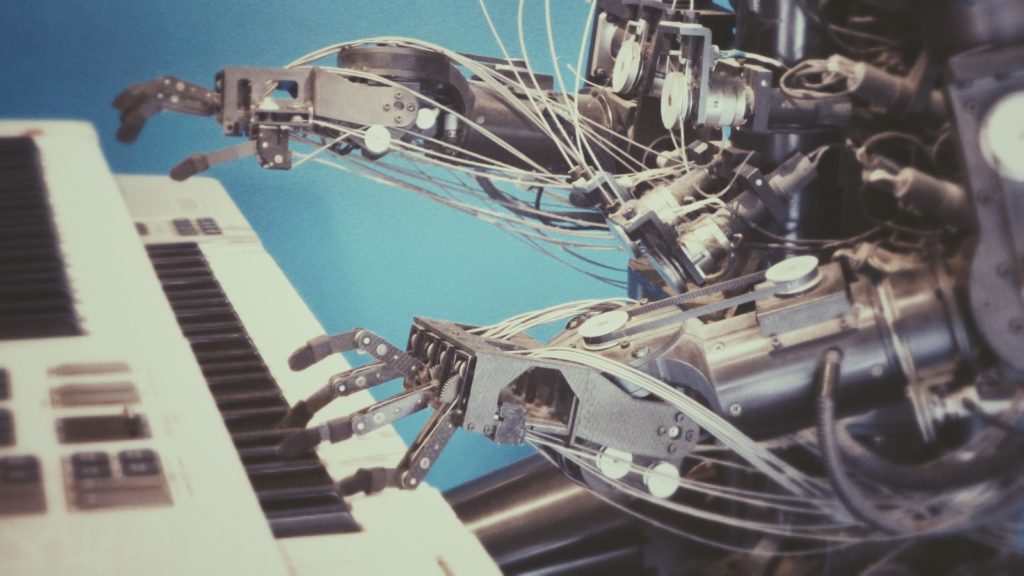With stablecoins gaining traction and regulation improving, African merchants may be nearing a crypto tipping point. Here’s why 2026 could mark a shift from hesitation to adoption.
Why work won’t become obsolete in the age of artificial intelligence

The rise of machine learning and artificial intelligence has spawned a fourth industrial revolution that has left many wondering where to next. After all, if robots can perform our roles at a much cheaper rate, what hope is there for gainful employment in years to come?
But while the skeptics among us may point to an era of joblessness in which humans are snubbed by their computer-driven counterparts, historical data points towards the likelihood of an impending societal shift, whereby the nature of work evolves to cater to advancing human needs.
We need only look back a few short decades to understand the impact that evolving technology can have on the workforce. Yes, we may have seen the likes of printers and postal services struggling in the wake of digital communications, but in their wake have come digital strategists, programmers and data scientists – careers we couldn’t even have imagined when PCs first became a feature in our homes.
Change for the better
Looking back a little further, it’s clear to see that each industrial revolution has significantly shifted, but ultimately benefited us as a race. From the initial agrarian revolution — when animals were used to replace human muscle power – to the arrival of electricity in the mid-1800s, each step in our evolution as a species has been preceded by the worry of waning employment opportunities.
Yet if we look at the data, official statistics from the UK suggest that unemployment levels have been largely unaffected by each industrial revolution, with only minor oscillations during the years, many of which linked directly to economic crises. Not only that, but we’ve seen that those living in absolute poverty worldwide (the equivalent of US$1/day in income) has dropped in relative terms from 84% in 1820 to just 9.6% in 2015.
Yes, as animals replaced humans and electricity replaced steam, jobs have in fact become more abundant, with a wealth of opportunities arising to cater for needs we never knew might exist.
Shifting landscapes
It’s clear to see that each industrial revolution brought about a seismic change in the basic hierarchy of human needs. As basic survival became relatively easy, so the need for entertainment became greater, and as agriculture became more automated, people flocked to cities, bringing about exponential growth in the need for different types of services.
More congested cities meant a greater need for security, as evidenced by the increase in the salary of the average London policeman from £17 to £42 between 1700 and 1810. Equally, as the need for self actualisation and personal enrichment increased, the average remuneration of solicitors, barristers and engineers increased exponentially over the same period.
Ultimately, as work has been redirected and automated over the years, humans have become more free to think and aspire to more. No longer preoccupied with fundamentals like shelter and sustenance, we grew taller, became healthier, lived longer and in so doing heralded the emergence of industries inconceivable to the previous generations.
Intelligence augmentation
So what kinds of changes will the fourth industrial revolution usher in? The key difference between this and its predecessors is that rather than replacing basic functions, this new shift in computing power means machines can essentially augment our frontal cortex functioning, making complex decisions and interpreting abstractions in ways never before conceived.
This points towards an even more dramatic shift in our needs hierarchy, with self actualisation becoming much more attainable, it is likely to move down in the pyramid to make place for new needs, that could not even be imagined before. What this will look like is almost impossible to say, with the massive uptick in processing power likely to generate countless new inventions that today would be unthinkable.
What we do know is that the next step in human evolution is sure to be an interesting one, and that whatever comes from it, our species is likely to end up better off as a result.
Feature image: Franck Veschi via Unsplash

